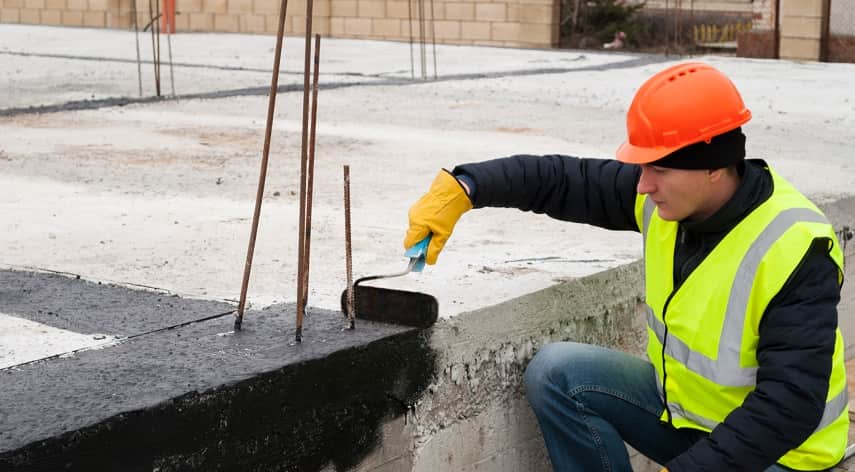15 Things Never To Plug Into A Power Strip
Power strips are an elegant and efficient way of managing the power outlet problems we all face at homes and offices. With so many appliances making their way into our day to day lives, it is almost impossible to find a space that provides enough power outlets to connect them.
Power strips are very useful in splitting and providing current to various appliances from a single outlet. But it is important to remember that each power outlet has a specific capacity, and stressing one with too many devices can be trouble.
Here are 15 things you should never connect to a power strip to protect your appliance and solve the power connection problems.
Table of Contents
Toggle1. Hair Dryers
A power strip in your bathroom feels like a godsend until you realize plugging your hairdryer into it may not be a good idea. The heating mechanism in your hair dryers consume a lot of power and plugging it into power strips could be problematic.
Also, power strips in the bathroom increase the risk of exposure to water, and connecting your appliance to it could be hazardous.
2. Flat Irons and Curl Irons
Like hair dryers, flat irons, and curl irons also use heating elements to style your hair. They also require connection to direct power outlets on your walls with proper safety mechanisms such as circuit breakers in case of accidental exposure to water.
Power strips may not be able to provide enough power to operate your appliance in the right power limits.
3. Toasters
This elegant appliance that greets you with a warm and crispy toast in the morning also uses a series of coils and wires to heat your bread to the right texture. The power draw is high in this case, and it could tremendously heat your power strip.
4. Coffee Makers
Your favorite coffee maker could also become a stress on the power strip. The appliance requires a lot of power to convert the roasted beans into the fresh brew.
It could damage your power strip, or you might end up with a pot of half brewed coffee that hardly gives you the morning energy.
5. Microwave
Microwaves are an integral part of today’s kitchen. From its ease of operation to the spectrum of recipes that are quick and simple to prepare, microwaves truly make up a smart kitchen.
But the marvelous activity of cooking your food particles in it requires heat that is way beyond the capabilities of a power strip. It is best to connect your microwave directly to the outlet. Make sure the outlet can provide enough power based on the ratings.
6. Space Heaters
These miracle appliances that keep your home warm during the harsh cold winters, and chilly, windy days, are heavy power consuming. Connecting them to a power strip may not be the right choice.
They go through on and off cycles, where, when the system is on, the amount of power draw is surging rapidly, causing a power strip to fail. Plugging it directly into wall sockets is best to avoid any fire accidents as the power surge could severely damage the power strip and overheat it to start a fire.
7. Refrigerators and Deep Freezers
Like space heaters, refrigerators also frequently go through on and off-cycle and require high amperage, especially during the peaking. It could easily overload a power strip and damage the appliance or the strip, especially if more machines are connected to the same.
Always connect them to power outlets capable of providing the power requirement of the appliance.
8. Slow Cooker
Although slow cooker does not require heavy amperage, they need a continuous supply of power for long durations that could create immense pressure on the power strip. It could lead to constant heating and damage to the strip.
In most cases, slow cookers are left unattended for hours in use, which could increase the risk of overloading and fire accidents.
9. Hotplates
The appeal to connect countertop appliances like a hot plate to a power strip could be deceiving, and they require power for longer durations that could increase stress and initiate hazardous outcomes when plugged into a strip.
Connect them directly to a power outlet to provide a continuous supply of power without any disturbance.
10. Air Compressor
An air compressor can come in handy from fixing flat tires to inflating your pool toys at work and home. But portable air compressors require lots of power to operate, which could be overloading your power strips.
Invest in a high capacity extension cord or plug into a wall socket for the best performance.
11. Sump Pump
Given the location of sump pumps, most power strips cannot operate in high moisture or humid conditions. It could lead to power failures and accidents due to water settling on the surface of the connection between the power strip and appliance. It is also a risky choice as the power strip could be exposed during flooding.
Try to use a proper outlet such as a GFCI, to reduce the risk of fire hazards with appliances such as a sump pump.
12. Food Processors
Although food processors are usually compatible with most power strip in terms of power requirements and grounding capabilities, the length of the cord and placing it in the kitchen could be a challenge.
Again, the risk of accidentally spilling water or other liquid on the strip exists, and some models with heavy power ratings may trip the connection.
13. Cloth Iron
Finding a comfortable spot for your cloth iron in the house can be tough, especially with shortcomings of power outlets. But connecting them to power strips could also be slightly risky with the heavy power requirements.
You can invest in heavy-duty extension cords with surge protection for this purpose.
14. Daisy Chain of Power Strips
Conjugating a series of power strips or connecting one power strip into another is a disastrous choice. It is one of the most common mistakes, as the power strips may be heavily overloaded with too many appliances relying on them at once.
Similarly, never connect extension cords to power strips, as it could overload the lines and cause a fire hazard.
15. Too Many Appliances at Once
While the purpose of a power strip is to provide outlets for multiple appliances, that does not mean that you can connect all the outlets with heavy power consuming appliances.
Try to manage the number of appliances connected to it together, and remove a few of your power strip starts to heat up too much.
Invest in power strips with surge protectors, even when you work with small loads, as a safety precaution.
Understand the capabilities of your wall socket or power outlets before you plug in your power strips or appliances. A mismatch could either damage your appliance or initiate a total power failure in the system. Consult an expert to help you with the power socket capabilities in case you require more heavy power outlets in your home for your safety.
Tony Lanzap, a distinguished astrologer, possesses a profound understanding of celestial patterns. With years of experience, he has honed his skills in interpreting the cosmos to provide insightful guidance. Tony's unique approach blends traditional wisdom with modern insights, making him a sought-after expert in the realm of astrology. His commitment to helping individuals navigate life's journey has earned him acclaim and trust among those seeking cosmic clarity.
Recommended For You
Spread the love While moving to your new city, there are a lot of things to be taken care of.
Spread the love Hyderabad is a city that experiences heavy rainfall during the monsoon season. This can often lead to
Spread the love When it comes to streaming services, Roku is one of the most popular and cost-effective options on





